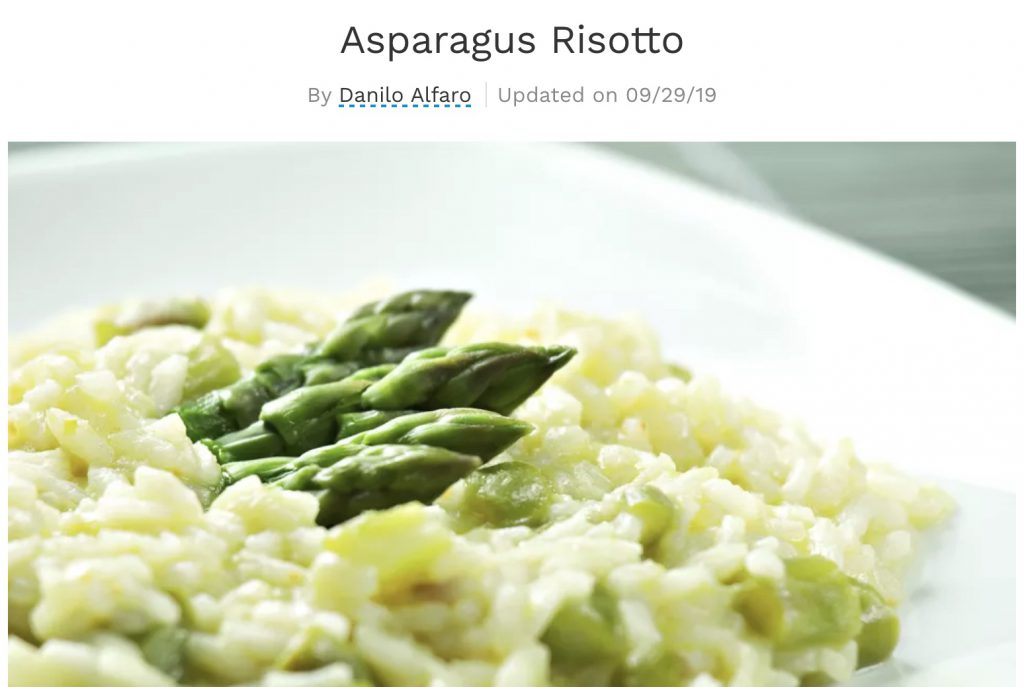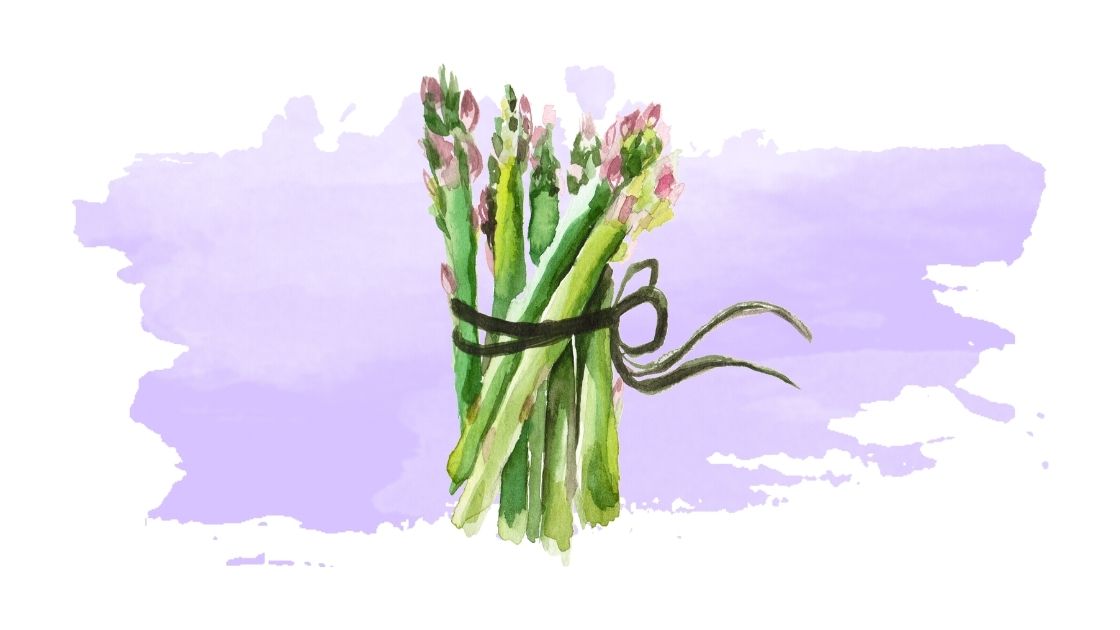Asparagus pee smell… something that I assumed everyone smelled. I mean, seriously, it is an inescapable, overwhelming, and unique smell. Right?
It turns out that many people reading this will have no idea what I’m talking about. But Benjamin Franklin knew (1781 quote), “a few stems of asparagus eaten, shall give our urine a disagreeable odour.”[ref]
Asparagus Pee and Odor Receptors:
A question that has plagued scientists for a while is “what causes the odor in asparagus pee”. Research on the topic is still not set in stone.
When you eat asparagus, it is broken down and absorbed into the body. One of the metabolites produced from asparagus is “methanethiol,” which contains sulfur. Some consider it to smell a little like cooked cabbage.
Odor receptors are found on the surface of the cells lining the nose, and they lock with the different chemical molecules coming into the nose. Specific molecules dock with specific receptors, sending a signal through the olfactory nerve to the brain.
How common is it?
In a study of nearly 7000 participants, more than half of the people could not smell asparagus pee. The researchers asked the people if they could usually detect an odor after eating asparagus, and then they looked at genetic variants in the group.
Studying a smell like this is tricky, though. How much of the odor was present? Does it matter how the asparagus was cooked? At what concentration can it be detected? Can you smell it only in your own pee, or are you sniffing other people’s urine? (I’m not signing up for that study.)
Another study looked into whether it was a lack of ability to smell the odor vs. a lack of producing it. The study found that 8% of participants’ urine did not have a detectable asparagus odor. The researchers also found that the ability to smell the asparagus pee smell is much stronger in those who carry the A allele of rs4481887 (OR2M7 gene).
Asparagus Pee Genotype Report:
Members: Log in to see your data below.
Not a member? Join here.
Why is this section is now only for members? Here’s why…
Lifehacks:
There really isn’t much in the way of lifehacks here…
So instead, here are a couple of asparagus recipes :-) Enjoy!


Related Articles and Topics:
Trimethylaminuria: Genetic variants that cause a malodorous body odor
Often referred to as ‘fish odor disease’, trimethylaminuria causes a strong odor in sweat, urine, and breath. It is caused by mutations in the FMO3 gene.ABCC11 gene:
Ear wax and no body odor
The ABCC11 gene determines both the type of earwax a person has and whether they have no armpit or body odor.
Key Genes to check for Alcoholism
Are there key genes to check for alcoholism? Learn more about the genetic connections to alcohol addiction and what research-backed treatment options are available.
Caffeine Metabolism and Your Genes
Caffeine remains the most popular ‘drug’ of choice for a large percentage of the population. Genetics determines how quickly your body processes and eliminates the caffeine and whether it is likely to make you jittery or anxious.
References:
“Cheesy Garlic Roasted Asparagus.” Cafe Delites, 22 Mar. 2020, https://cafedelites.com/cheesy-garlic-roasted-asparagus/.
Markt, Sarah C., et al. “Christmas 2016: Food for Thought: Sniffing out Significant ‘Pee Values’: Genome Wide Association Study of Asparagus Anosmia.” The BMJ, vol. 355, 2016. www.ncbi.nlm.nih.gov, https://doi.org/10.1136/bmj.i6071.
—. “Sniffing out Significant ‘Pee Values’: Genome Wide Association Study of Asparagus Anosmia.” BMJ (Clinical Research Ed.), vol. 355, Dec. 2016, p. i6071. PubMed, https://doi.org/10.1136/bmj.i6071.
—. “Sniffing out Significant ‘Pee Values’: Genome Wide Association Study of Asparagus Anosmia.” BMJ (Clinical Research Ed.), vol. 355, Dec. 2016, p. i6071. PubMed, https://doi.org/10.1136/bmj.i6071.
Pelchat, Marcia Levin, et al. “Excretion and Perception of a Characteristic Odor in Urine after Asparagus Ingestion: A Psychophysical and Genetic Study.” Chemical Senses, vol. 36, no. 1, Jan. 2011, pp. 9–17. PubMed Central, https://doi.org/10.1093/chemse/bjq081.
—. “Excretion and Perception of a Characteristic Odor in Urine after Asparagus Ingestion: A Psychophysical and Genetic Study.” Chemical Senses, vol. 36, no. 1, Jan. 2011, pp. 9–17. PubMed Central, https://doi.org/10.1093/chemse/bjq081.
—. “Excretion and Perception of a Characteristic Odor in Urine after Asparagus Ingestion: A Psychophysical and Genetic Study.” Chemical Senses, vol. 36, no. 1, Jan. 2011, p. 9. www.ncbi.nlm.nih.gov, https://doi.org/10.1093/chemse/bjq081.
“Try This Delicious Risotto Made With Fresh Asparagus.” The Spruce Eats, https://www.thespruceeats.com/asparagus-risotto-recipe-995994. Accessed 22 Nov. 2021.

